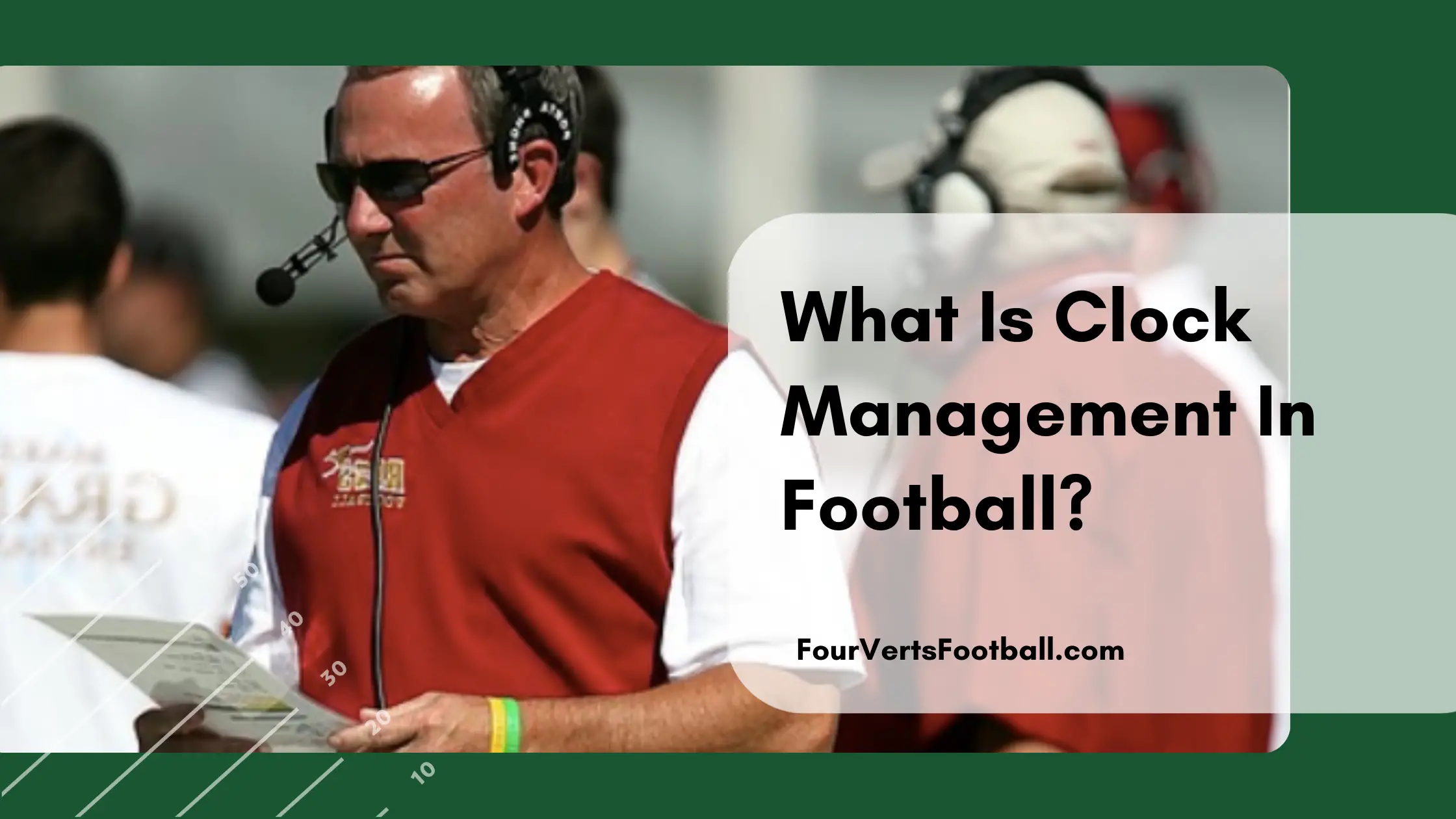The term clock management in football refers to making smart decisions regarding the game clock and play clock. Proper clock management involves the effective use of timeouts and playcalling in order to benefit your team.
In the NFL there are several different decisions a coach or player can make that will affect how much time is left on the clock. Throughout this article, we are going to break down the key factors of clock management.
Key Factors In Clock Management
Timeout Usage
The main factor in clock management is a coach’s ability to use timeouts at the right moments. In the NFL each team is going to be given three timeouts each half.
When a coach calls a timeout he is able to stop the clock. This is incredibly important because it gives teams a chance to use this perk as an advantage late in the game.
If one team is killing the clock the opposing coach can call a timeout and stop the clock once the play is over.
In between each play a team can burn about fourty seconds off the clock. This means with three timeouts you can buy your team up to two minutes of extra time on the clock.
Timeouts can also be used on offense in order to stop the clock to give your team more time to score.
This is especially helpful on big plays downfield as it takes longer for the offense to get down the field and start the next play.
To display good time management in football means you are using timeouts effectively to help your team. These timeouts can also backfire if the clock stoppage allows the other team to score due to the extra time.
Play Calling
Playcalling is another factor that plays heavily into clock management. When a player travels out of bounds near the end of the half the clock is going to be stopped.
This rule is in place for the final two minutes of the first half and the final five minutes of the second half.
By utilizing plays in which players can get out of bounds to stop the clock a coach can extend the game.
The inverse is also true, when a coach is running the ball when trying to catch up late in a game the clock will continue to run.
Coaches need to be aware of their play-calling when in the later stages of the game. To perform proper clock management a coach will take into account the time remaining when selecting their plays.
Two Minute Warning
The two-minute warning is another factor that plays into clock management in football. When there are two minutes remaining in either half the game will be paused and the clock will be stopped.
In order to play with proper clock management coaches need to remain aware of when the two-minute drill is approaching.
Oftentimes timeouts will be used throughout the half meaning the two-minute drill is one of a coach’s few chances to stop the clock.
Utilizing the two-minute warning in your playcalling can give your team a better opportunity to score late in a game. When focusing on clock management coaches need to be sure to take the two-minute warning into account.

